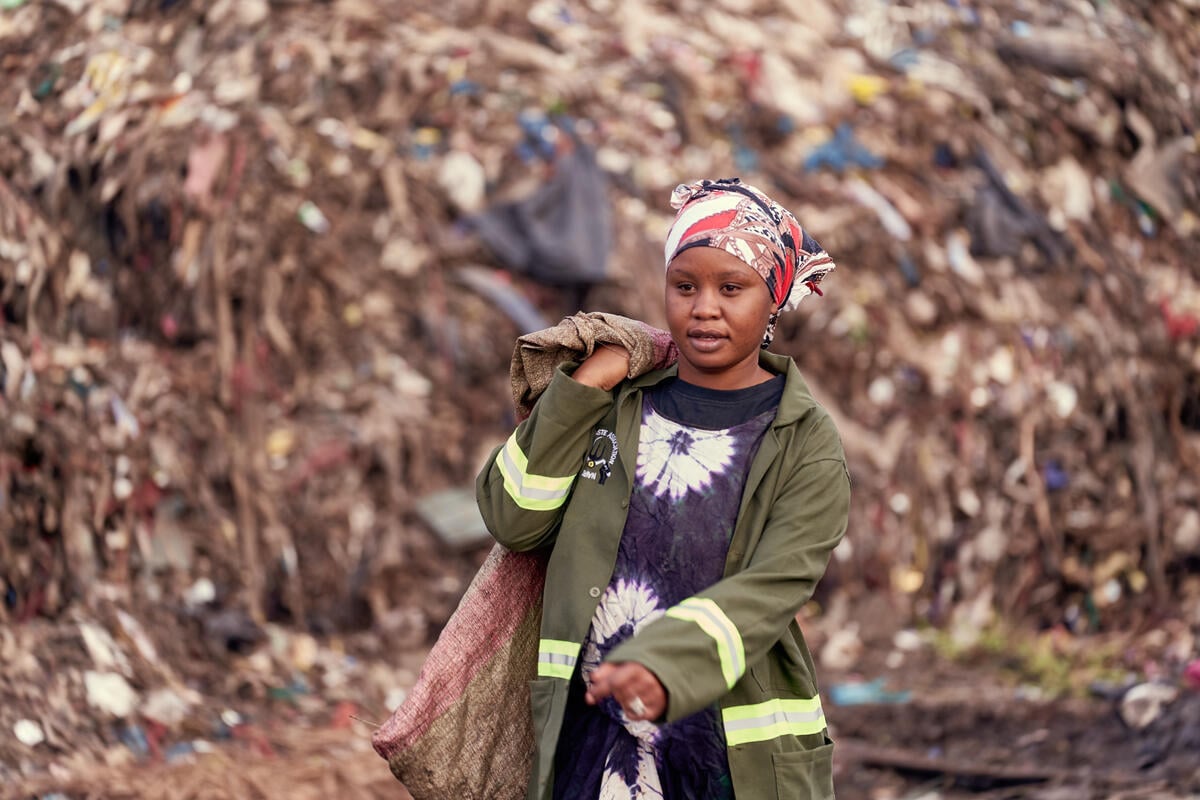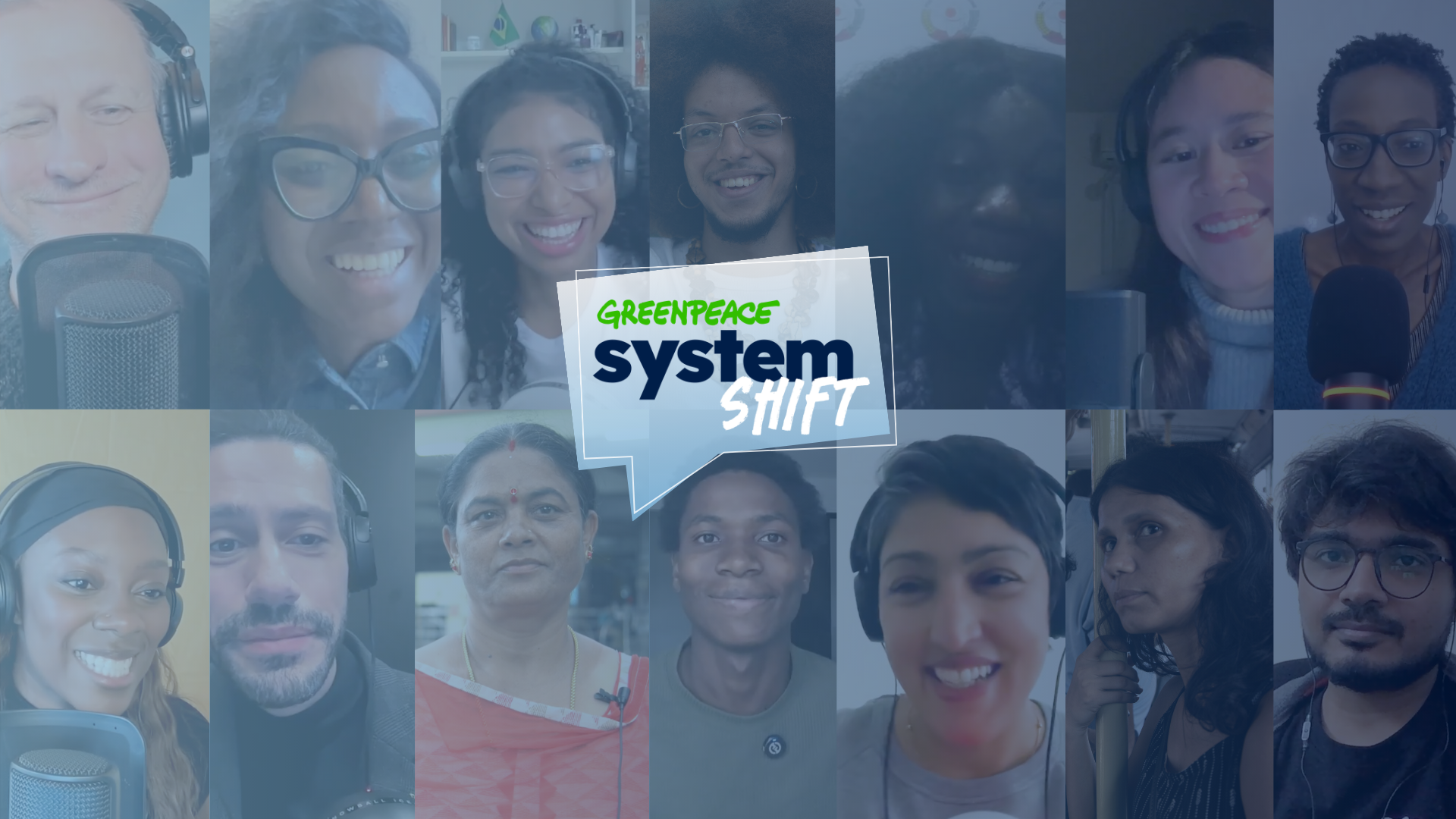Hamburg, 24 November 2016 – New research on fashion trends and textile waste, released by Greenpeace on the eve of Black Friday, highlights the serious environmental consequences of overconsumption. Clothing is among the most sold products on the annual shopping day promoted in many countries, which, critics say, encourages impulsive overspending and unnecessary purchases through ‘bargain’ offers and discount prices.
“It is hard to resist the allure of a good bargain, but fast fashion means we’re consuming and trashing fashion at a higher rate than our planet can handle,” said Kirsten Brodde, head of Greenpeace’s Detox my Fashion campaign.
To counter excessive consumerism, growing numbers of people choose to abstain and observe “Buy Nothing Day” instead. As part of this movement, “trash queens” in dresses upcycled from discarded clothes are visiting shopping centres in three major cities in Asia and Europe to remind customers how many impulse buys of today end up as trash tomorrow.
The research, Timeout for fast fashion, published today by Greenpeace Germany, shows how the fast fashion business is rapidly expanding: Clothing production doubled from 2000 to 2014, with sales rising from US$ 1 trillion in 2002 to 1.8 trillion by 2015, and a forecast of 2.1 trillion by 2025. The average person buys 60 per cent more items of clothing every year and keeps them for about half as long as 15 years ago, producing immense volumes of textile waste.
Environmental impacts detailed include chemicals from textile factories polluting rivers and oceans, high levels of energy use and pesticides from cotton growing contaminating agricultural land. One of fast fashion’s biggest costs to the planet comes from the rising use of synthetic fibres, says Greenpeace, in particular polyester that emits nearly three times more CO2 in its lifecycle than cotton. Already present in 60 per cent of clothing, polyester can take decades to degrade, as well as polluting marine environments with plastic microfibres.
As of today, recycling is not a solution. Markets are overloaded with unwanted clothes [2] and technological challenges mean full recycling of clothing into new fibres is still far from commercially viable. “Our research indicates that the second hand clothing system is on the brink of collapse. Fashion brands need to urgently re-think the throwaway business model and produce clothing that’s durable, repairable and fit for re-use [3]. As consumers, we also hold the power. Before buying our next bargain item, we can all ask ‘do I really need this?’,” said Brodde.
Since 2011, Greenpeace’s Detox campaign has gathered support from 78 companies including fashion brands, retailers and textiles suppliers to achieve zero discharges of hazardous chemicals in the manufacturing supply chain by 2020 and many are making progress towards this goal [4]. However, if the trend for more and cheaper clothing continues, any gains that are made on eliminating hazardous chemicals will be outstripped by higher rates of production and consumption in the industry as a whole.
ENDS
Notes to editors:
Infographics and illustrations available here
[1] Greenpeace Germany research, Timeout for fast fashion (pdf)
[2] Each year, the EU alone generates 1.5 to 2 million tonnes of used clothing, much of it unsalable due to poor quality. Exports to the global south have risen dramatically since the year 2000, with 4.3 million tonnes shipped in 2014. Forty two countries in Asia, Africa and South America have already restricted or banned second-hand clothing imports to protect local markets.
[3] The purchase and use of clothing contributes about 3% of global annual CO2 emissions – from manufacturing, logistics and usage such as washing, drying and ironing. Independent research shows that doubling the useful life of clothing from one to two years could reduce these emissions by 24%, saving large quantities of freshwater and significantly cutting the release of hazardous chemicals.
[4] Greenpeace International ranking of brand’s progress in eliminating toxic chemicals from their supply chain:
Contacts:
Lu Yen Roloff, Communications, Detox my Fashion, Greenpeace Germany: +49 151 100 28 267, [email protected]
David Graumann, Picture Desk, Greenpeace Germany: +49 40 30618 362, [email protected]
Dr. Kirsten Brodde, Global Project Lead Detox my fashion, Greenpeace Germany: +49 170 4299718, [email protected]



